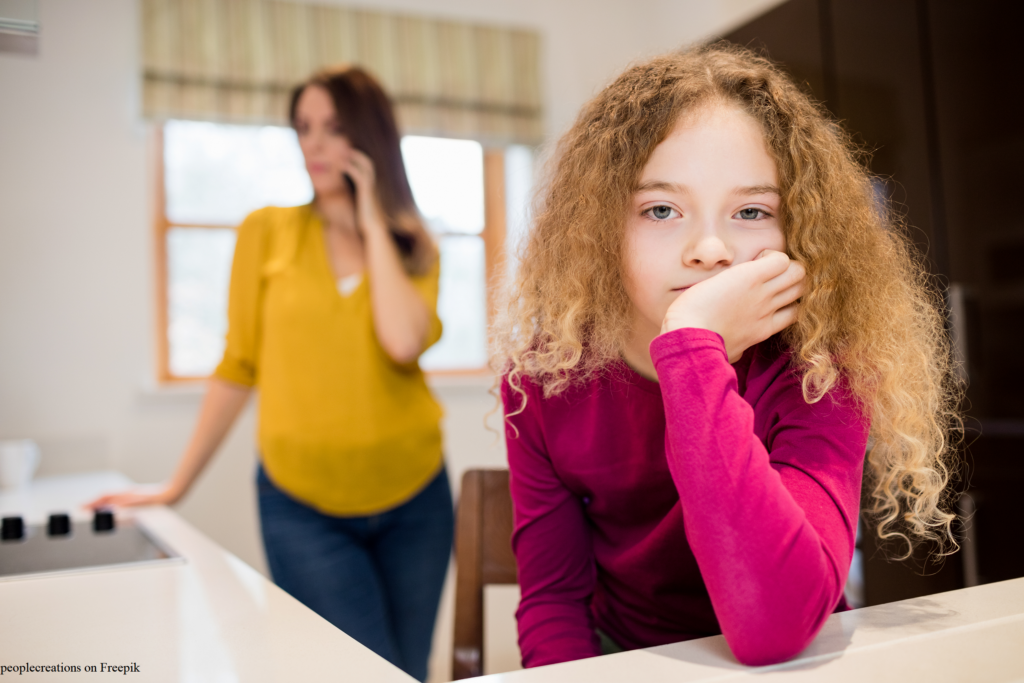 Relational trauma can be harder to detect and has more side effects in adulthood than physical abuse. However, many people believe they don’t have trauma, that their parents loved them, and that their childhood was happy. The same people feel uncomfortable in a group. They may admit that they didn’t feel a part of their family or that they’re different, not close, or misunderstood. What they are describing is misattunement, when we don’t feel our partner or parents “get” us, hear or understand us, or that we’re not connecting – that we’re not in sync with each other. It plants seeds of loneliness and shame.
Relational trauma can be harder to detect and has more side effects in adulthood than physical abuse. However, many people believe they don’t have trauma, that their parents loved them, and that their childhood was happy. The same people feel uncomfortable in a group. They may admit that they didn’t feel a part of their family or that they’re different, not close, or misunderstood. What they are describing is misattunement, when we don’t feel our partner or parents “get” us, hear or understand us, or that we’re not connecting – that we’re not in sync with each other. It plants seeds of loneliness and shame.
Attunement is necessary for healthy child development. It validates us and conveys that we’re loved, that we make an impact, and that we matter. Misattunement often starts in infancy when our emotions aren’t noticed and mirrored or our needs aren’t met. This has neurological consequences, which tell our body we’re not safe in the relationship. It can trigger a sympathetic nervous system reaction – a “fight or flight” trauma response. It’s particularly traumatic to babies and young children who are totally dependent on their parents. They don’t feel safe to seek nurturing, yet they can’t get away. Watch on Youtube, the “Still Face Experiment.”
Micro-abandonments happen in all relationships, but when a parent frequently misattunes to us in childhood, it’s traumatic. Even when parents don’t directly shame us, emotional abandonment and misattunement lead to insecurity, the trauma of being unseen, loneliness, and self-doubt. When as children we’re unable to emotionally connect, we make ourselves wrong or selfish and/or repress our needs and feelings, while in truth, it’s our parents’ shortcomings that are the problem.
Research* has found that relational trauma, such as misattunement, can have significant physiological and emotional consequences into adulthood. First, we don’t learn to attune to ourselves – our feelings, wants, and needs.
Relational trauma can lead to an insecure attachment style and is compounded by repeated insecure adult relationships where we don’t experience attunement. We may not recognize or be able to name the problem. Our reaction to misattunement happens quickly at an unconscious level. From childhood, we have developed coping strategies to deal with emotional abandonment and shame. We might withdraw, fight, fawn, freeze, or shut down. We may become aggressive or withdraw in a flight response by distracting ourselves, staying busy, or practicing addictive behaviors to numb ourselves and create distance from our partner. We may give up and withdraw or isolate.
Relational trauma impinges our ability to trust because it wasn’t safe to trust an early caregiver. We develop coping mechanisms that manifest as codependent symptoms to deal with the ensuing shame and apprehension of abandonment. Shame leads to fear, anxiety, depression, people-pleasing, irrational guilt, aggression, low self-esteem, intimacy issues, and dysfunctional boundaries and communication. Our codependent behavior is an attempt to protect our vulnerability. We hide who we are to stay safe, yet lack the tools to effectively set boundaries and protect ourselves. Some people cope with learned self-sufficiency. They push others away or completely withdraw from intimate relationships to avoid re-experiencing trauma. In severe cases, relational trauma can lead to personality, dissociative, sleep, or eating disorders, addiction, self-harm, and other health issues.
Relational trauma and our adaptations jeopardize healthy, authentic, intimate relationships, where we could actually be seen and nurtured. Even in situations where we are safe, we may still feel unsafe. Thus, changing our habits is difficult and scary because it triggers our original wounds.
It takes time to heal from relational trauma. We may not be aware of it until we question why we keep attracting unavailable partners or are forced to self-reflect on our fears when we’re in a secure relationship.
Authenticity is the antidote to shame, but it doesn’t come easily. It requires courage to admit our fear and needs to ourselves and then a second time to another person. We may surprise ourselves by bursting into tears when we risk being vulnerable, such as asking for more intimacy in a relationship. Sharing and healing our wounds in therapy enables us to be vulnerable with an intimate partner.
Meanwhile, you can share in a 12-step group and with a sponsor. Notice when you’re not attuned to someone else. You can begin to heal shame by doing the exercises in Codependency for Dummies and Conquering Shame and Codependency. You may also relate to the essays and poems in Unfettered Soul: Poems and Contemplations on Recovery.
© 2025 Darlene Lancer
*Dye, H. L. (2020). Is Emotional Abuse As Harmful as Physical and/or Sexual Abuse? Journal of Child & Adolescent Trauma, 13(4), 399–407. https://doi.org/10.1007/s40653-019-00275-0
*Norman, R. E., Byambaa, M., De, R., Butchart, A., Scott, J., & Vos, T. (2012).The long-term health consequences of child physical abuse, emotional abuse, and neglect: a systematic review and meta-analysis. PLoS Medicine, 9(11), e1001349. https://doi.org/10.1371/journal.pmed.1001349
